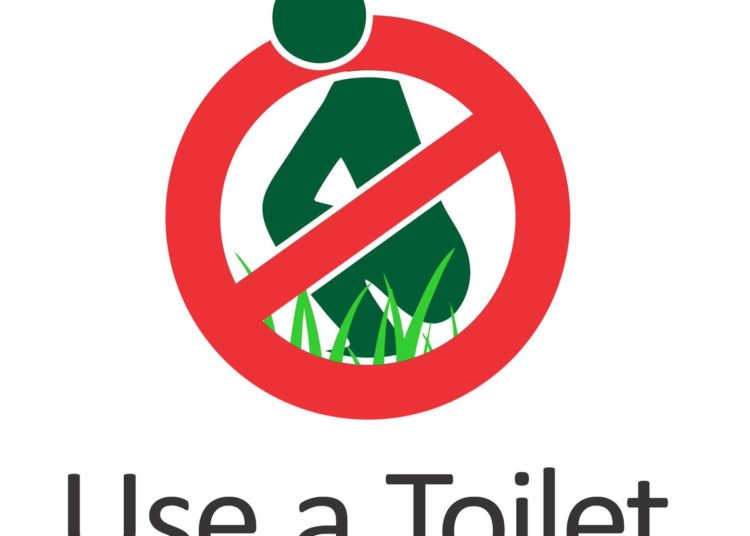“We live on water; it is part of our culture and defecating on the water is the only option we have left, as we cannot afford to buy improved sanitation facilities, the son of the Baale of Adogbo Village, Makoko Water Community in Yaba Local Government Area (LGA), Lagos state, Taiwo Shemede told LEADERSHIP during a visit to the community.
Yes! This is the way of life for those living at Makoko Water Community. No toilet facilities and as such, residents defecate and urinate on the water where they live and feed.
But Makoko community is not the only place where open defecation is being practiced in Nigeria, as 23.4 per cent of people living in South-west, still practice open defecation, the 2021 Multiple Indicators Cluster Survey (MICS 2021) report has revealed.
For instance, 40.3 per cent of people living in Oyo state still practice open defecation. 25.4 per cent in Osun state; 24.7 per cent in Ondo state; and 2.0 per cent of residents living in Lagos state still dispose their faeces in fields, forests, bushes, open water bodies of water, beaches or other open spaces, or with solid waste, a practice known as ‘open defecation’.
The implication of this, according to public health experts is that the practice can lead to cholera outbreak, diarrhoea as well as parasitic infections, such as soil transmitted helminths (worms).
In terms of economic impact, a report by Water Aid, revealed that Nigeria loses about 1.3 per cent (N455 billion) of GDP annually due to poor sanitation as a result of illness, low productivity and loss of learning opportunities.
On health impact, more than 100,000 children under five years of age die each year due to diarrhoea; of which 90 per cent is directly attributable to unsafe water and sanitation, the report showed, adding that one in four children under five years of age exhibit severe stunting, while one in 10 are wasted, due to frequent episodes of diarrhoea and other Water Sanitation and Hygiene (WASH) related diseases.
“Frequent episodes of WASH-related diseases cause absence from school or work, as affected people take time off to heal, and some to take care of a sick relative. In most homes, children are responsible for fetching clean water for domestic use. Time spent in search of water and frequent episodes of WASH-related diseases results in reduced school enrolment and attendance. Open defecation also results in loss of dignity, increased risks of insecurity and violence against women and children,” the report revealed.
The United Nations Children’s Fund (UNICEF) WASH Specialist Mr Bioye Ogunjiobi, said the practice of open defecation has contributed to the outbreak of cholera and diarrhoea in Nigeria.
Ogunjiobi said several studies have revealed that diarrhoea is the second largest killer of children in Nigeria and more than 50 per cent of diarrhoea cases are caused by open defecation, adding that the government of Nigeria and the people spend a lot of money on treatment of diseases most of which are preventable by ending open defecation.
Averting the trend
The WASH specialist however advocated for more awareness, especially at the grassroots level. “If people know that what they are doing is the cause of their children’s constant ailments, they will likely stop the practice,” he stated.
Ogunjiobi also tasked the private sector to step-in, adding that government cannot do it alone.
Recall that in November 2018, the federal government declared a state of emergency in WASH sector, demonstrating political will at the highest level of government, and launched a national campaign tagged ‘Clean Nigeria: Use the Toilet’ to jump-start the country’s journey towards becoming Open Defecation Free by 2025. The ambitious aim of the hygiene behaviour change campaign is to get 47 million Nigerians to use the toilet and stop open defecation.
As effort to reach the target by 2025, Ogunjiobi however called on all government ministries and parastatals to see the campaign as a priority as ending open defecation requires inter-sectoral initiatives. “All state governments need to see it as development priority and invest in supporting the campaign in their various states,” he added.
In the same vein, UNICEF representative in Nigeria Peter Hawkins said the importance of adequate and safe sanitation and proper hand hygiene practices cannot be overstated.
“It helps prevent illnesses that impact families’ livelihoods, and more importantly, take the lives of far too many children. We can and must achieve an open defecation-free Nigeria by 2025”, Hawkins stated.
It is clear that more needs to be done to ensure that all Nigerians have access to safe toilets and that the country shift closer to ending open defecation across the country, the UNICEF representative stated, adding that “With the Clean Nigeria campaign, we are making strong efforts, but the whole country needs to put their full weight behind this campaign. We cannot afford to fail. Ending open defecation is crucial to making progress in so many other areas, including health.
“There is a clear commitment by the Nigerian government to helping the population to move away from the practice of open defecation, a move that will help support better health outcomes for all, including especially children”, Hawkins averred.





